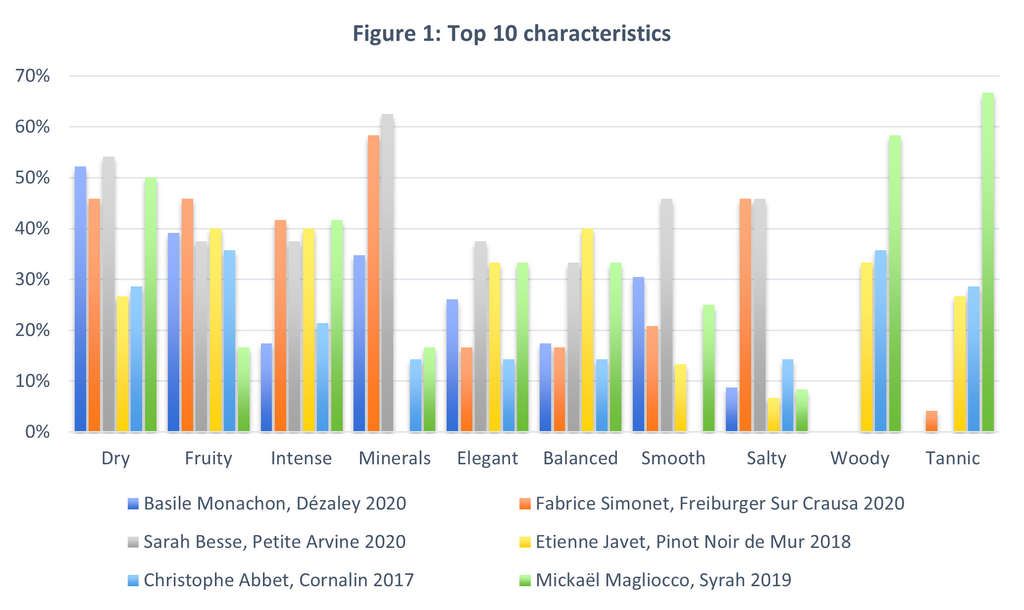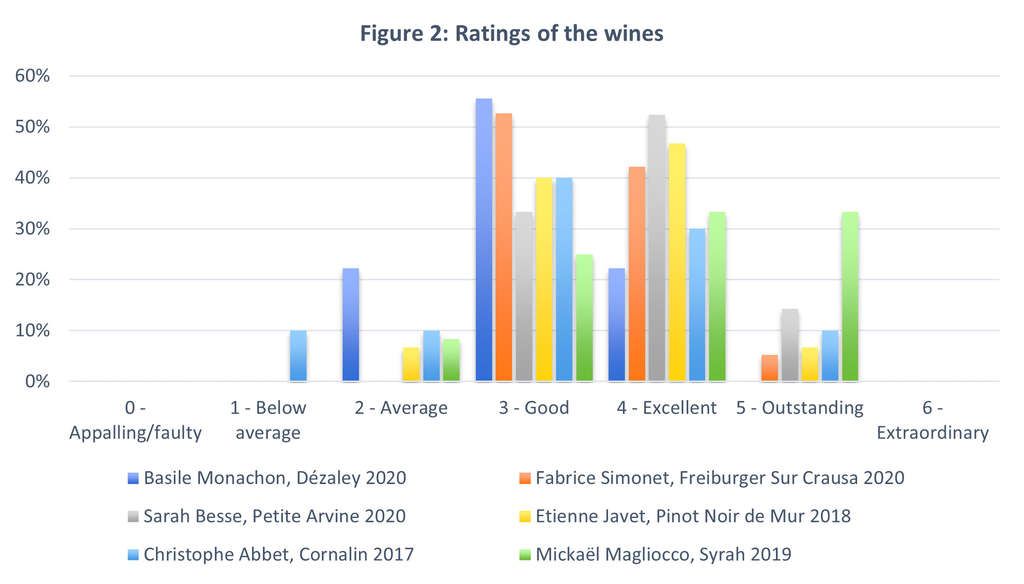Do Swiss wines suit Singaporean palates?
A positive evaluation of Swiss wines in Singapore by cosmopolitan participants suggests that Swiss wines could indeed be a big hit in South East Asia.
How the world sees Swiss wines
For two decades, Swiss wines have occasionally created a buzz. In 2007, a tasting of the best Syrahs in the world, organized by the Grand Jury Européen, surprisingly placed Swiss wines at the top. Then, in the same year, Bettane et Desseauve awarded the prize for the best foreign wine (non-French) to a Cornalin from Valais. These premises of notoriety were reinforced through articles in various foreign media.
However, further steps forward have been taken more recently. The reference publication, The Wine Advocate (TWA), now provides regular coverage of Swiss wines. Moreover, the scores are globally high, which shows that the overall quality level is excellent. At the same time, Swiss wines are becoming more present on the international and secondary markets. Certain estates have become sought after, not only in Switzerland but also outside our borders. Speculation is particularly strong for Gantenbein, Donatsch, M.-T. Chappaz, and some other star estates.
Test market with a cosmopolitain twist
Against this backdrop of opportunity, we sought to get a sense of how wine professionals and enthusiasts in Singapore evaluate Swiss wines. We therefore presented a limited but representative sample of Swiss wines to a panel of over 30 tasters including wine business executives, consultants, importers, educators and enthusiasts with sometimes spectacular cellars. Singapore offers a vibrant and globally minded wine and food scene. The very cosmopolitan nature of the participants also gives an idea of the match between the profile of Swiss wines and the tastes of consumers/buyers not only from Singapore but more generally from South East Asia.
Tasted wines
The wines presented were six in number: three whites and as many reds.
- Basile Monachon, Dézaley 2020
- Fabrice Simonet, Freiburger Sur Crausa 2020 (TWA: 93 points)
- Sarah Besse, Petite Arvine 2020 (TWA: 93 points)
- Etienne Javet, Pinot Noir de Mur 2018 (TWA: 92+ points)
- Christophe Abbet, Cornalin 2017
- Mickaël Magliocco, Syrah 2019
The decision to include only wines from the French-speaking part of the country is mainly explained by the desire to ensure overall consistency in the tasting. Incidentally, Swiss German wines, especially Pinot Noir, received relatively more media coverage from TWA than the Swiss French wines. This choice therefore allowed for complementarity with TWA. Only three wines of the selection were rated by TWA (see scores in the list above).
The wines were tasted one after the other. In order to structure the discussions, an online questionnaire was administered to collect the participants' opinions on each wine.
Fine wines with a soul
The tasting was introduced on the following theme: "Wines with a soul: the soul of their producer, of their terroir and of their grape variety". This theme was reinforced and supported by the presence of several winemakers, either live or through a video shot before the event. This was very much appreciated by the participants who could feel a closeness with the winemakers.
Flavor profiles
Figure 1 shows the Top 10 olfactory and gustatory characteristics of the six wines according to the panel of tasters. Some common denominators emerge: these are dry wines, with a pure and intense fruit, elegant, balanced and smooth. The white wines are also characterized by their minerality and salinity (especially the Freiburger and Petite Arvine), as well as their cleanliness and beautiful acidity. The reds are marked by their origins and terroir, their tannins and a woody side which is probably due to their youth and ardor (knowing that Cornalin is not aged in barrels).
In short, these are contemporary wines in the sense that they are witnesses of their terroir and suffer neither from any lack nor excess.
Quality appraisal
The participants' evaluations are shown in Figure 2. The evaluations are generally very good and often excellent. All wines received averages between "3-good" and "4-excellent" and several wines were rated as "exceptional". However, none of the wines were rated as "extraordinary", which is not surprising given the profile of the tasters – generally very experienced but with a limited knowledge of Swiss wines.
Chasselas has its fans, even in Singapore. A minority had difficulty understanding the Dézaley, but the other participants were sensitive to its subtle palette of white fruits and its aromas of chamomile and jasmine.
The Freiburger was appreciated for its balance between finesse and intensity, all carried by a marked salinity.
The Petite Arvine was unanimously appreciated. Several participants found it exceptional.
The Pinot Noir also got very good ratings. The wood still needs to melt a bit, but the wine already displays a sense of harmony thanks to its finesse, elegance and fruit purity.
Cornalin is a wine of character and this is reflected in the evaluations. It is a controversial wine, but many found it excellent and even exceptional.
Syrah got the highest average rating and a large percentage of participants called it exceptional.
Is there a market for Swiss wines in Singapore?
One of the questions was about the price the participants would be willing to pay for each wine. The answers were probably a bit biased because the selling prices in Switzerland were transparently shared as the tasting progressed. In particular, the very moderate price of the Dézaley, tasted first, probably conditioned the participants to revise downwards their estimates for the following wines.
Participants were willing to spend an average of SG$ 45 to 50 (about CHF 32 to 35) for whites and SG$ 54 to 56 (CHF 38 to 40) for reds. The small variation is explained by the variety of wines, which makes it difficult to find benchmarks. Moreover, in this type of exercise, participants tend to announce a price that is a mixture between what they would actually be willing to pay and what they think is the market price of the wine under assessment – the latter certainly being lowered because of the low awareness of Swiss wines. However, one thing is clear: participants were willing to pay higher prices for these wines than their actual retail prices. The participants were particularly surprised by the very moderate prices of the Dézaley and Syrah wines, which they would have been prepared to pay significantly more for.
The high ratings combined with very positive feedback and enthusiastic exchanges with many participants suggest that Swiss wines could be a big hit in Singapore and more generally in South East Asia.
EHL Hospitality Business School
Communications Department
+41 21 785 1354
EHL



